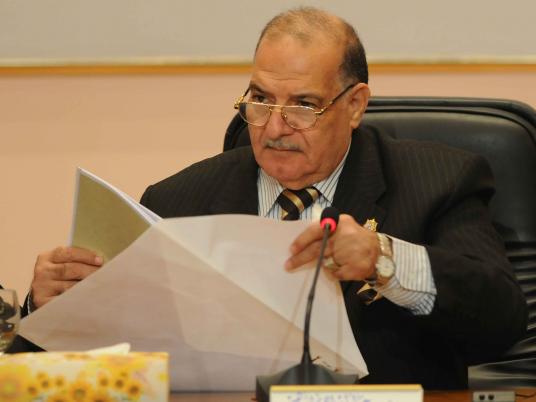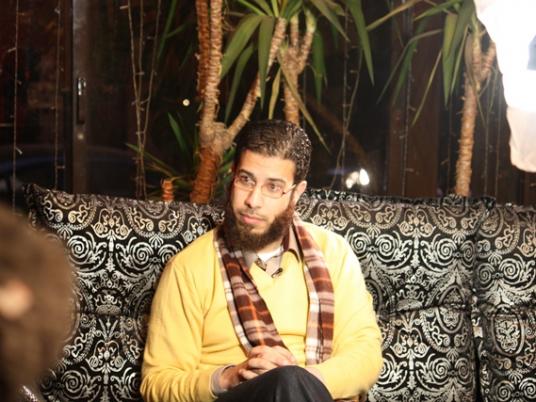
After Islamist parties won over 50 percent of seats in the first phase of People's Assembly elections, secular parties are determined to stay in the game.
In the first of three electoral phases, the Democratic Alliance led by the Muslim Brotherhood won 73 seats and the Salafi Nour Party won 31 seats out of the 150 that have been decided thus far.
The highest scoring secular alliance, the Egyptian Bloc, won 14 seats, while the Wafd Party won 11. The Revolution Continues Coalition (RCC), uniting liberal and leftist parties in addition to members of the Union of Revolutionary Youth, won four seats, and the Adl Party, running on its own, won only two seats.
Attempts at unity
During the first phase of elections, experts attributed the loss of secular parties in many districts to the presence of numerous candidates with similar ideologies, which split the secular vote and made it harder for secular candidates to compete with Islamist candidates.
Hoping to avoid this issue in the next round, the Wafd and the Adl parties, the Egyptian Bloc, the RCC and other secular parties met several times last week and agreed to coordinate in competition for some individual seats.
For the single-winner seat in Giza’s fifth district, candidates from the Adl Party and Egyptian Bloc withdrew in favor of RCC candidate Khaled Talima. An Egyptian Bloc candidate also withdrew from the individual professional seat in Giza’s third district, in support of an independent candidate, political scientist Amr el-Shobaki. Some of the parties also withdrew their candidates to aid RCC candidate Islam Lotfy in Giza.
Experts, however, believe that this cooperation is too little, too late.
The parties remain in competition in the remainder of single-winner and all list-based elections.
“There is not enough time left to change tactics. There should have been complete collaboration before the start of the elections,” says Hala Mustafa, editor-in-chief of Al-Ahram Quarterly Democracy Review.*
Secular coalitions have rejected an initiative from some civil society organizations calling for complete coordination on individual seats in the second stage of the elections. The organizations published on Saturday a list of recommended candidates from the secular parties for every seat.
The RCC issued a statement following the release of this list saying that it had been discussed but not formally approved by the secular parties.
With parties ranging in ideology from far-left to moderate liberal within every secular alliance, ideological differences do not fully explain the reluctance of these coalitions and parties to collaborate. Mustafa explains that personal political aspirations are also standing in the way.
“The idea of teamwork in Egypt is not well-founded. There is always a desire to be the leader, and every alliance is tied to the names of its leaders. It’s difficult to choose a single leadership for all the parties,” says Mustafa.
Shifting campaign tactics
Emerging as the secular coalition with the best chance of countering Islamists in parliament, the Egyptian Bloc is now focusing on campaigning against the Islamist parties and promoting itself as an alternative.
Shortly after the announcement of the first phase results, Naguib Sawiris, founder of the Free Egyptians Party, the leading member of the Egyptian Bloc, accused the Brotherhood of receiving aid from Qatar and Saudi Arabia and called the movement “a new kind of dictatorship.”
Campaign banners for the Egyptian Bloc that read “Give your vote to the list that will neither turn Egypt into Afghanistan nor into America, give your vote to the list that will keep Egypt Egyptian” recently appeared throughout Giza.
The Egyptian Bloc’s television commercials also target Islamists. One commercial features individuals from different sectors of society expressing fears of a decline in tourism. The ad ends by saying, “Give your vote to those who will protect your livelihoods,” reinforcing fears that Islamists will pass laws that will affect tourism in Egypt, such as bans on alcohol and other practices.
The Egyptian Bloc, though, has been using Quranic verses in their electoral campaigns. The bloc’s fliers carry the Prophet Mohamed’s saying, “Reason it and go ahead.”
Another slogan on a Free Egyptians Party candidate's flier reads, “Together to keep the second article in the constitution,” appealing to the large segment of society turned off from liberal parties for fear that they will cancel the article asserting that Islamic law is the basis of all legislation.
Other secular forces, though, refuse to play this game.
“We want the competition between the parties to be based on politics, but some parties are insisting on making it about religion,” says Lotfy, reiterating the RCC decision not to campaign in reaction to the Islamists, but rather increase its efforts to introduce its own ideas the Egyptian public.
“We are outside the sphere of polarization, and we represent a middle ground so we will not coordinate with any party just to oppose another,” says Mohamed Abbas, a member of the Union of Revolutionary Youth and candidate on the RCC list, pointing out one issue that may be making cooperation between the secular alliances difficult.
The coalition’s campaigning activities were put on hold for a week before the first round of elections as a result of violent clashes around Tahrir Square that left at least 45 protesters dead. Abbas believes that this hurt their chances in the first phase badly and hopes that they will do better in the remaining phases.
Despite their criticism of the campaign practices of Islamist parties, some liberal players are resorting to these same practices in the hopes of winning more seats in the next two rounds.
“The Islamists are compelling secular parties to play by their rules, which results in all the political players adopting a religious tone in campaigning,” says Mustafa.
Fliers for Wafd, Revolution Continues and other liberal groups that criticized Islamists for using mosques in their campaigns are now being distributed outside of mosques.
But despite their increased efforts on different fronts, Mustafa says it is too late for secular parties to change their prospects and expects the results of the next two phases to be similar to those of the first.
*Correction: This article originally identified Hala Mustafa as a spokesperson for the Egyptian Social Democratic Party. That is a different Hala Mustafa.

